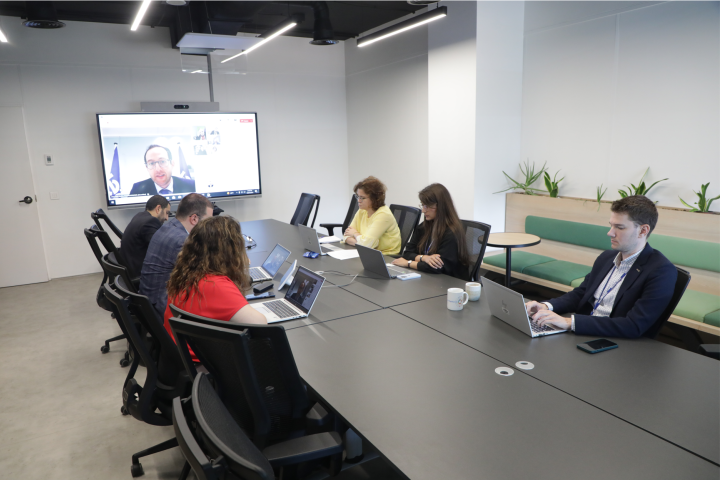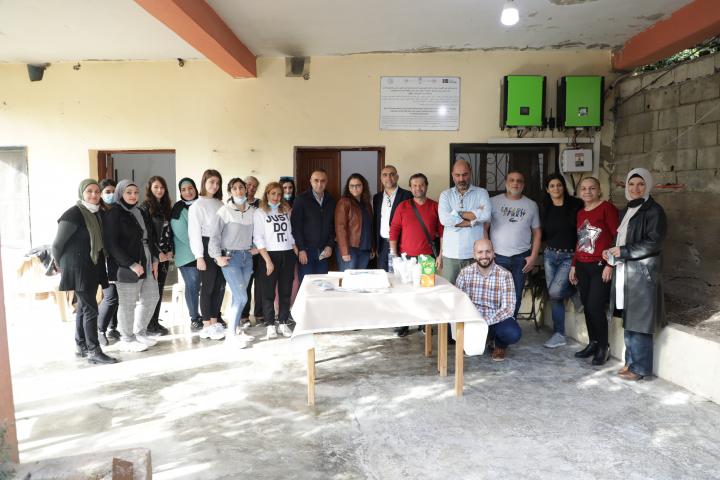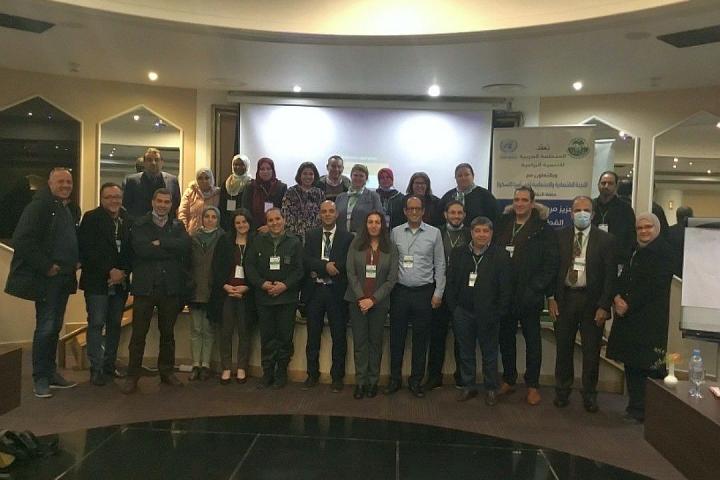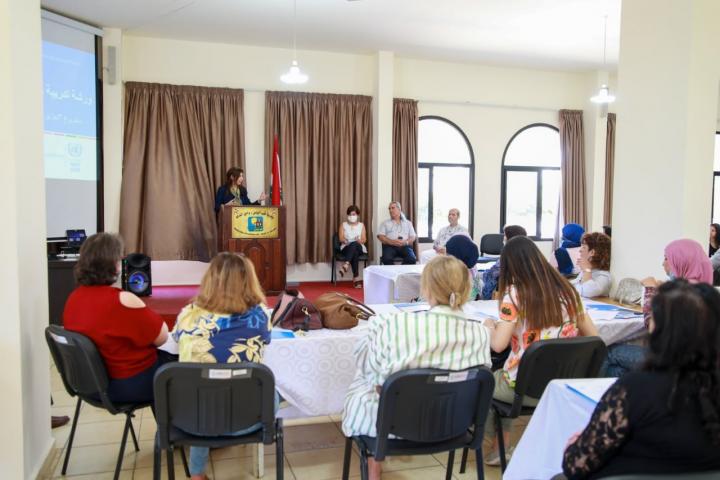ESCWA celebrated this morning the World Environment Day with an event held at the UN House, Beirut, and attended by foreign and Arab diplomats and a host of representatives from the local, regional and international non-governmental organizations (NGOs). This year’s celebration was marked by a statement from the British Ambassador to Lebanon Tom Fletcher, in addition to remarks by ESCWA Deputy Executive Secretary Nadim Khoury, representative of the UN High Commissioner for Refugees (UNHCR) Veronique Robert, and the chairperson of NGO, the Food Establishments Recycling Nutrients (FERN) International Meredith Danberg-Ficarelli. In his statement, Fletcher said “at a time of austerity and insecurity, protecting the environment becomes more not less urgent. The people that matter most are individuals and communities who do not point to a dirty river but get in and clean it.” For his part, Khoury said that ESCWA aims to build on available opportunities in order to improve food security in the region through encouraging more relaxed standards to have cosmetically perfect foods for import and export; encouraging the export of crops to prevent dumping them to the end of fixing prices; coordination of food collections throughout food banks in connection with food establishments and supermarkets; and adjusting shopping behavior to waste less. For her part, Robert pointed out, “the sudden arrival of large numbers of people in a small area can place significant pressure on the local environment. Refugees and internally displaced persons often have no choice but to rely on natural resources for their survival, particularly during an emergency.” “The pressure of refugees may lead to natural resources deterioration, it may impact health, social conditions and have serious social and economic consequences in hosting countries,” she added. As for the World Environment Day theme for this year, “Think.Eat.Save”, Robert said that for UNHCR it applies more to nutrition and food security, linking into livelihoods and natural resource management in view to enhance the protection and wellbeing of refugees and internally displaced persons. In her statement, Danberg-Ficarelli noted the establishment of FERN in November 2012 seeking to engage the public around issues of food waste and resource scarcity by facilitating composting and recycling in restaurants. “We believe that people in Lebanon and beyond must become accustomed to waste. Not used to seeing it in their homes or on the streets, but aware that there is value in the stuff we throw away. Resources are finite, and we should treat them as such,” she said. According to the United Nations, every year, 1.3 billion tonnes of food is wasted, equivalent to the amount produced in the whole of sub-Saharan Africa. At the same time, 1 in every 7 persons in the world goes to bed hungry and more than 20,000 children under the age of 5 die daily from hunger. While resources to sustain 7 billion people (and growing to 9 billion by 2050) are increasingly scarce, the United Food and Agriculture Organization (FAO) estimates that a third of global food production is either wasted or lost. Food waste is an enormous drain on natural resources and a contributor to negative environmental impacts.
Commission
Secretariat
Our Clusters
Collaborate
Resources
Key Resources
Updates
Get in touch



